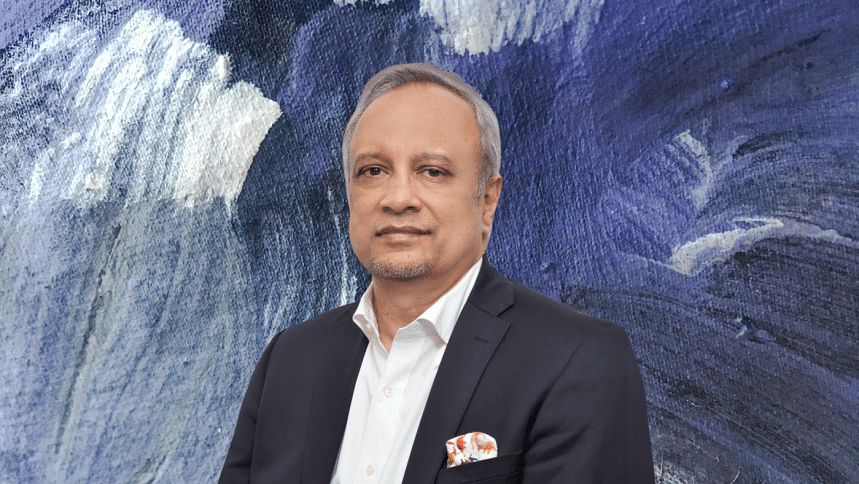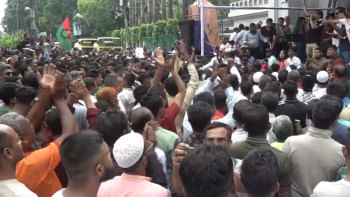"Start local, think global", Samiran Gupta urges Bangladesh to shape the internet’s future

The Internet Corporation for Assigned Names and Numbers (ICANN) is critical to maintaining the stable and secure operation of the global internet. In an exclusive interview, Samiran Gupta, Vice President of Stakeholder Engagement and Managing Director for Asia Pacific at ICANN, discusses the state of internet infrastructure in Bangladesh, local domain adoption, universal acceptance, and the importance of inclusive participation in internet governance.
How would you assess the state of internet infrastructure and the operational community in Bangladesh?
Samiran Gupta: We've been working with the technical community in Bangladesh for a long time, focusing on capacity-building and training, particularly around the country code top-level domains (ccTLDs) .bd and .bangla. This includes collaboration with key organisations such as BDNOG, ISPAB, BASIS, and BDIX. We've also supported BTCL in improving operational practices.
When the .bd domain experienced downtime recently due to a DNSSEC issue, ICANN provided technical assistance to help restore services quickly. Our involvement is both planned and responsive, depending on what the local community needs.
We've also been actively promoting Universal Acceptance (UA) and Internationalised Domain Names (IDNs) in Bangladesh by sponsoring events and raising awareness. Adopting global best practices is crucial for ensuring the resilience and security of the Domain Name System (DNS), which remains central to ICANN's mission.
What is your view on the current adoption of .bd and .bangla domains? How can this be improved?
Samiran Gupta: Adoption of local domains is largely market-driven and varies from country to country. In Bangladesh, a stronger local marketing effort is likely needed. The community should explore the barriers to adoption and identify actionable steps to increase use. ICANN is ready to provide any necessary support, but the initiative must come from within the local internet ecosystem.
Is there a need to raise awareness about Universal Acceptance (UA) in Bangladesh?
Samiran Gupta: Definitely. UA is a technical challenge, but also a user experience issue. We've developed a 12-module academic course for integration into university curricula, which includes programming and implementation best practices. Increasing awareness, particularly among the local technical community, would support broader internet inclusion, especially for Bangla-speaking users.
ICANN holds three global conferences each year. Could Bangladesh host one in the future?
Samiran Gupta: We're open to proposals from all regions. Host city selection depends on several factors—connectivity, accommodation, venue quality, IT infrastructure, and security. Detailed criteria are available on the ICANN website. If any organisation in Bangladesh is interested, we'd be happy to discuss the requirements.
What role can non-technical participants, such as policymakers, journalists, and civil society, play in ICANN's work?
Samiran Gupta: ICANN's multi-stakeholder model is built to be inclusive. Non-technical actors are encouraged to join and contribute. We recommend starting with the ICANN for Beginners page, which offers a guided entry point. The Asia-Pacific Regional At-Large Organisation (APRALO) is particularly active, and my team is always ready to assist newcomers.
How can ICANN foster greater involvement from journalists?
Samiran Gupta: Our meetings are open to everyone who registers. While journalists don't have a dedicated track, they're encouraged to attend and engage with topics that interest them—be it policy, technology, or civil society. My team is always open to facilitating conversations with media professionals.
What's the best way for individuals to actively participate in ICANN's work?
Samiran Gupta: Start locally. Attend regional or community events to build connections and understand the context. When you attend a global ICANN meeting, you'll be much better prepared. We also encourage joining working groups, which are open to anyone with the time and interest. ICANN's policy process is bottom-up, so every voice matters.
Are ICANN resources available in languages other than English? Will there be materials in Bangla?
Samiran Gupta: Traditionally, ICANN provides content in the six UN languages. But we're now piloting an AI-based translation service to support additional languages, including Bangla, especially for the upcoming round of new gTLD applications. These translations may not be perfect initially, so we're keen to work with local communities to improve them.

 For all latest news, follow The Daily Star's Google News channel.
For all latest news, follow The Daily Star's Google News channel. 








Comments